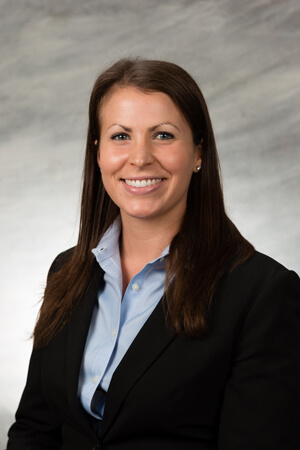
For much of the nation’s food supply, removing unsafe products off of store shelves can take up to 10 months, according to news reports — even when people are getting sick.
The growing complexity and scope of modern supply chains result in painfully slow product recalls, even when consumer well-being is at stake. For example, in 2009, salmonella-tainted peanuts killed nine people and sickened more than 700 in 46 states, and the resulting nationwide recall cost peanut farmers, their wholesale customers and retailers more than $1 billion in lost production and sales. Tyson Foods’ 2019 recall of nearly 12 million pounds of frozen chicken strips also cost the company millions.
The risk to health increases for each day that bad food remains in circulation, and little is known about food companies’ underlying recall process to identify and remove tainted products from the supply chain. However, new research from the University of Notre Dame helps to close the gap between what is and isn’t known about food recalls.

There are two key drivers of recall uncertainty — upstream and downstream complexity, according to “Food for Thought: Recalls and Outcomes,” forthcoming in the Journal of Business Logistics from lead author Kaitlin Wowak, associate professor of information technology, analytics and operations in Notre Dame’s Mendoza College of Business.
“This research is the first to propose that managers embed recall options into their decision-making when trying to manage recall uncertainty,” Wowak said. “Our study suggests that product recalls may not cleanly fall into recall categories as previously thought, but instead take the form of recall layering — that is, nested recalls or a recall within a larger recall. Understanding that recall layering may be present can help companies segment a recall to more effectively manage it.”
Recall options give decision-makers the opportunity but not the obligation to take certain actions in the future and can help managers make better-informed decisions as the recall process unfolds. Wowak says three recall options emerged from the study, all of which can provide major potential value under conditions of recall uncertainty.
“Scale options enable managers to expand recalls over time,” she noted. “Deferral options allow managers to postpone executing a recall until a later point in time when they have a better understanding of the recall situation, and abandonment recall options occur when a recall was incorrectly initiated and thus is terminated when more information is revealed.”
The study suggests that recall layering can inform a firm’s strategy for how to effectively manage recalls as they evolve. For example, when a firm encounters the need for a recall, it can invoke different recall options depending on the nested recalls that surface within the larger recall.
“The specific nested recalls that emerge may change from recall to recall and could evolve as the larger recall unfolds, depending on the degree of uncertainty,” Wowak explained. “Assume a firm initiates a recall that has a high degree of upstream complexity. A nested recall within that larger recall could be effectively managed with a deferral recall option. Once the firm has a better understanding of the situation, the next nested recall that emerges may be effectively managed with a scale recall option.”
The study provides insights about which recall options may be used in various situations to help decision-makers manage the recall when facing uncertainty and makes designing, revising and improving the recall process more actionable for managers and scholars.
The team, including co-authors Christopher Craighead from the University of Tennessee and David Ketchen Jr. and Brian Connelly from Auburn University, conducted 55 interviews involving 21 different entities along the entire supply chain (farms, manufacturers, distribution centers/retailers and logistics providers) as well as nonprofit organizations, federal governmental agencies and subject matter experts over multiple years.
Contact: Kaitlin Wowak, 574-631-6685, Katie.wowak@nd.edu
Originally published by at news.nd.edu on May 17, 2021.